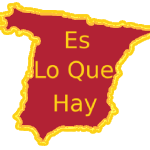Empadronamiento in Spain refers to the process of registering as a resident in a specific municipality. This registration holds great significance for expats as it serves as proof of address and residency, unlocking a range of benefits and opportunities. Empadronamiento enables expats to access public services such as healthcare, education, and social services, while also ensuring legal compliance and facilitating administrative procedures. Moreover, empadronamiento promotes integration into the local community, allowing expats to actively participate in local activities, elections, and associations. By obtaining empadronamiento, expats can enjoy the financial advantages associated with taxation, property rentals, and utility bill discounts. It is a vital step for expats seeking to fully engage with the Spanish society and embrace the benefits of being a registered resident.
Obtaining empadronamiento in Spain holds significant benefits and importance for expats. This official registration establishes residency and provides access to a wide range of public services and rights. Empadronamiento enables expats to avail themselves of healthcare services, education opportunities, and social assistance programs. Moreover, it contributes to legal compliance and administrative procedures, ensuring expats meet their obligations and avoid potential consequences. Beyond the practical aspects, empadronamiento promotes integration into the local community, fostering engagement in local activities, elections, and neighborhood associations. It also offers financial advantages, such as tax implications, property rental benefits, and utility bill discounts. Obtaining empadronamiento is a crucial step for expats to fully immerse themselves in Spanish society, access essential services, and enjoy the many privileges associated with official residency.
What is Empadronamiento?
Empadronamiento is a municipal registration system in Spain that requires individuals to register their residency at the local town hall (ayuntamiento). Its primary purpose is to track and document the population residing within a specific municipality. This registration provides important data for local governments, allowing them to plan and allocate resources effectively. Empadronamiento also serves as a means to grant individuals access to public services and rights, such as healthcare, education, and social services. It helps establish legal compliance, facilitating administrative procedures and contributing to an individual’s integration into the local community. Additionally, empadronamiento has financial implications, influencing matters such as taxation, property rental, and utility bill discounts. Overall, empadronamiento plays a vital role in ensuring efficient governance, promoting social inclusion, and providing expats with a wide range of benefits and opportunities while living in Spain.
An overview of the registration process for empadronamiento in Spain involves several necessary steps and requirements. To begin, expats are typically required to visit their local town hall or administrative office to initiate the registration. They will need to complete an application form and provide specific documentation, such as proof of identity, proof of address, and, in some cases, a rental contract or property ownership documents. Additionally, expats may need to provide a valid passport or identification card, a valid visa or residence permit, and potentially other supporting documents. The registration process may vary slightly depending on the region or municipality, but generally, it involves submitting the required paperwork, having the documents verified, and receiving an empadronamiento certificate or proof of registration. Understanding the process and gathering the necessary documents in advance can help streamline the empadronamiento registration process for expats in Spain.
Access to Public Services and Rights
Obtaining empadronamiento in Spain grants expats access to a range of public services and rights. Registered individuals can benefit from improved access to healthcare services, including primary care and emergency treatment. Empadronamiento also opens doors to educational opportunities, such as enrolling children in local schools or universities. Additionally, being empadronado allows expats to access social services, such as assistance programs and support for vulnerable individuals. Furthermore, empadronamiento can have implications for residency status, providing expats with a stronger legal foundation and facilitating their integration into Spanish society. By availing themselves of these public services and rights, expats can enhance their overall well-being and quality of life in Spain.
When expats obtain empadronamiento in Spain, they gain access to a range of essential services that contribute to their well-being and integration. Empadronados enjoy improved healthcare access, allowing them to enroll in the national healthcare system and access medical services with ease. Additionally, empadronamiento opens doors to education opportunities, enabling expat children to enroll in local schools and access quality education. Expats also benefit from a wide array of social services, such as social welfare programs, community support, and cultural activities, fostering a sense of belonging and social integration. The empadronamiento certificate serves as proof of residency and unlocks these valuable services, making it an essential step for expats settling in Spain.
Obtaining empadronamiento in Spain has significant implications for expats’ residency status and eligibility for various benefits. Registering as a resident through empadronamiento establishes a formal connection with the local municipality, which can be crucial for proving residency and fulfilling legal requirements. Empadronamiento serves as proof of address, allowing expats to access essential services, such as healthcare, education, and social assistance programs. Furthermore, it can contribute to the fulfillment of residency requirements for obtaining a NIE (Número de Identificación de Extranjero) or other necessary permits. Being empadronado can also enhance eligibility for certain benefits and local subsidies, such as discounted transportation, reduced fees for cultural activities, or property tax exemptions. Overall, empadronamiento plays a pivotal role in establishing expats’ legal status, facilitating integration, and accessing the various benefits available in Spain.
Legal Compliance and Administrative Procedures
Highlighting the legal obligations associated with empadronamiento is essential for expats considering the registration process in Spain. Empadronamiento entails complying with certain legal requirements, such as providing accurate personal information, updating the registration when necessary, and notifying the authorities of any changes in residence. By fulfilling these obligations, expats demonstrate their commitment to legal compliance, which can positively impact their residency status, access to public services, and overall integration into the local community. It is crucial to emphasize the importance of adhering to these legal responsibilities to ensure a smooth and lawful experience as a registered resident in Spain.
Not obtaining empadronamiento as an expat in Spain can have various potential consequences. Firstly, without empadronamiento, expats may face difficulties in accessing essential public services, including healthcare, education, and social assistance programs. Empadronamiento is often a requirement to enroll children in local schools or receive medical care through the public healthcare system. Additionally, not having empadronamiento could result in limited access to certain benefits and rights granted to residents, such as voting in local elections or participating in neighborhood associations. Furthermore, from a legal compliance standpoint, failure to obtain empadronamiento may lead to administrative issues and potential penalties. It is crucial for expats to understand and fulfill the empadronamiento requirements to fully integrate into the local community and enjoy the rights and services available to residents.
When obtaining empadronamiento in Spain, it is essential to understand the necessary paperwork and steps involved in the registration process. Firstly, expats should gather the required documents, which typically include a valid identification document (such as a passport), proof of residence (e.g., rental contract or property deed), and a completed empadronamiento application form. Once the paperwork is in order, expats can visit their local town hall or municipal office to initiate the registration process. At the office, they will need to present the documents, fill out any additional forms, and provide any additional information required. It is important to follow the instructions provided by the local authorities and ensure all paperwork is accurate and complete. By carefully navigating these steps, expats can successfully register for empadronamiento and access the benefits it brings.
Integration and Local Engagement
Empadronamiento plays a crucial role in fostering integration within the local community for expats. By registering as a resident, individuals gain a sense of belonging and legitimacy, allowing them to actively participate in community events, engage with neighbors, and establish meaningful connections. Empadronamiento opens doors to local activities, cultural events, and social gatherings, offering opportunities to immerse in the rich traditions and customs of the region. It also enables expats to contribute to local decision-making processes, such as neighborhood associations or elections, thereby empowering them to have a voice and actively shape their surroundings. Embracing empadronamiento not only grants expats access to the benefits of residency but also facilitates a sense of belonging and integration, making them an integral part of the vibrant fabric of the local community.
Empadronamiento in Spain opens up opportunities for expats to actively engage in local activities, elections, and neighborhood associations. By registering as a resident, expats can become a part of the vibrant community fabric, contributing to the social and cultural life of their new surroundings. Participation in local activities allows expats to immerse themselves in Spanish traditions, festivals, and events, fostering a deeper understanding and appreciation of the local culture. Empadronados also gain the privilege of having a say in local elections, enabling them to exercise their democratic rights and shape the decisions that impact their community. Moreover, joining neighborhood associations provides a platform for expats to connect with neighbors, establish meaningful relationships, and collaborate on initiatives that enhance the quality of life for everyone in the neighborhood. Through active involvement in local activities, elections, and neighborhood associations, expats can forge lasting connections, contribute to their community’s development, and create a sense of belonging in their new home.
Exploring the social and cultural benefits of being registered as a resident opens doors to a vibrant tapestry of experiences in Spain. By obtaining empadronamiento, expats gain opportunities to immerse themselves in the local community, fostering connections with neighbors, participating in neighborhood associations, and engaging in cultural events. This newfound integration allows expats to embrace Spanish traditions, festivals, and customs, enriching their cultural understanding and enhancing their overall sense of belonging. From savoring regional cuisine to partaking in local festivities, being registered as a resident provides expats with a deeper appreciation and involvement in the social fabric of Spain, creating lasting memories and forging meaningful connections with the local community.
Financial and Economic Considerations
Empadronamiento can have significant positive impacts on the financial matters of expats in Spain. Firstly, it establishes a proof of residency, which can lead to various financial benefits and opportunities. Expats who are empadronados may be eligible for local tax breaks or exemptions, ensuring potential savings. Additionally, empadronamiento enables access to discounted rates for utility bills, such as water, electricity, and gas. Expats can take advantage of these reduced rates, contributing to overall cost savings. Moreover, empadronamiento is often required for certain financial transactions, such as opening a bank account or applying for a mortgage. Being registered as a resident through empadronamiento helps establish trust and credibility with financial institutions, facilitating smoother processes and potentially better financial opportunities for expats in Spain.
Obtaining empadronamiento in Spain has significant implications for expats in various areas, including taxation, property rental, and utility bill discounts. Firstly, empadronamiento establishes residency and can impact an expat’s tax obligations, potentially allowing them to access certain tax benefits or exemptions available to residents. Secondly, when it comes to property rental, being empadronado can provide legal protection and ensure compliance with rental regulations, benefiting both tenants and landlords. Lastly, empadronamiento often enables expats to access utility bill discounts or subsidies offered by local authorities, reducing the costs of services such as water, electricity, or waste management. Understanding these implications can help expats make informed decisions and fully leverage the advantages of empadronamiento in Spain.
Highlighting the potential financial benefits or incentives available to empadronados, obtaining empadronamiento in Spain can offer numerous advantages. Expats who register as residents may gain access to property rental discounts, reduced utility bills, and eligibility for certain local financial assistance programs. Additionally, being empadronado can positively impact taxation matters, potentially leading to exemptions or benefits specific to residents. By taking advantage of these financial perks, expats can not only enhance their financial well-being but also maximize their integration into the local community and enjoy a more rewarding experience while living in Spain.
Tips and Advice for Empadronamiento
When navigating the empadronamiento process in Spain, expats can benefit from practical tips to ensure a smooth experience. First, gather all necessary documentation such as proof of address, identification, and residence permit. Research the specific requirements of your municipality to avoid any surprises. It is advisable to make an appointment in advance to avoid long wait times at the empadronamiento office. Arrive prepared with all required documents and a basic understanding of the local language to facilitate communication. Seek assistance from local expat communities, forums, or professional services that can provide guidance and support throughout the process. By following these practical tips, expats can navigate the empadronamiento process efficiently and fully enjoy the benefits it offers.
When obtaining empadronamiento in Spain, it is crucial to be aware of the required documentation and know where to seek assistance. The specific documentation needed may vary depending on the municipality, but typically includes a valid passport or ID, proof of address (such as a rental contract or utility bill), and a completed empadronamiento application form. To ensure a smooth process, expats can contact the local town hall (ayuntamiento) or the nearest empadronamiento office for detailed information on the specific requirements and procedures. Additionally, expat associations, community centers, or online forums can provide valuable guidance and assistance, sharing experiences and tips on gathering the necessary documents and navigating the empadronamiento process successfully.
Addressing common challenges and potential solutions for a smooth empadronamiento registration experience is crucial for expats navigating the process. Some challenges may include language barriers, unfamiliarity with the required documentation, or difficulty in finding the appropriate registration office. To overcome these hurdles, expats can seek assistance from local expat support groups, hire professional translators or interpreters, or consult with specialized relocation services. Additionally, conducting thorough research beforehand, ensuring all necessary documents are prepared and organized, and making appointments in advance can help streamline the registration process. Being proactive, seeking guidance, and leveraging available resources will contribute to a smoother empadronamiento experience for expats in Spain.
Conclusion
Obtaining empadronamiento in Spain provides expats with a range of key benefits. Firstly, it grants access to essential public services such as healthcare, education, and social services, ensuring expats can fully integrate into their new community. Additionally, empadronamiento is crucial for legal compliance, as it demonstrates residency and helps fulfill administrative requirements. By registering, expats can enjoy local engagement opportunities, participate in neighborhood associations, and actively contribute to the social fabric of their surroundings. Empadronamiento can also bring financial advantages, including potential tax benefits, property rental discounts, and reduced utility bills. Overall, obtaining empadronamiento is a vital step for expats in Spain, offering a gateway to rights, services, integration, and a fulfilling life in their adopted country.
Encouraging expats to prioritize empadronamiento is essential to fully enjoy the numerous advantages it offers. By registering as a resident in Spain, expats gain access to a wide range of public services, such as healthcare, education, and social assistance, ensuring a higher quality of life. Empadronamiento also fosters integration into the local community, providing opportunities for engagement in local activities, elections, and neighborhood associations. Additionally, it brings financial benefits, including potential tax advantages and discounts on property rentals and utility bills. To make the most of their expat experience in Spain, it is crucial for expats to understand the significance of empadronamiento and take the necessary steps to complete the registration process promptly.
For further assistance or guidance on empadronamiento in Spain, expats can refer to official government websites, such as the Ministry of Interior or local town hall websites, which provide detailed information on the registration process and requirements. Expats can also seek guidance from expat forums, online communities, or social media groups where fellow expats in Spain share their experiences and offer advice. Additionally, reaching out to local expat associations, relocation services, or legal professionals specializing in immigration and residency matters can provide valuable insights and assistance throughout the empadronamiento process.




